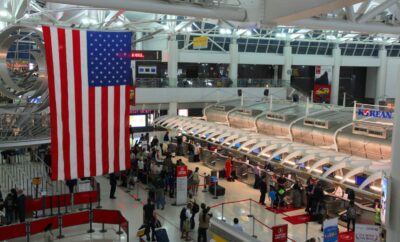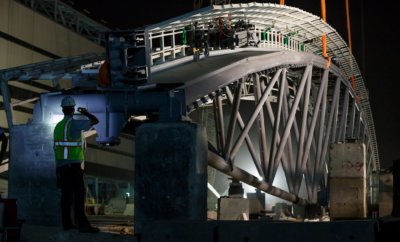Business
California Tech Firm to Pay 12 Workers Over Violation of H-1B Visa Requirements

Representational Image
Photo: Bigstock
The foreign workers were promised $8,300 per month as salary but were being paid only $800, the labor department said.
A California-based company run by an Indian American businessman has been asked to pay $173,044 to 12 foreign employees, most of whom are from India, for violating salary requirements of the H-1B visa program, the U.S. Department of Labor said on May 1.
Cloudwick Technologies, founded by Maninder Chhabra, had promised salaries of up to $8,300 a month but the employees were paid as little as $800 per month, the federal government said, adding that Cloudwick Technologies also made illegal payroll deductions, according to the Seattle Times.
“Investigators found that the company paid impacted employees well below the wage levels required under the H-1B program based on job skill level, and also made illegal deductions from workers’ salaries,” the department said in a statement. “As a result, some of the H-1B employees that Cloudwick brought from India with promised salaries of up to $8,300 per month instead received as little as $800 net per month.”
Chhabra, the founder and CEO of the firm, said that the labor department “misrepresented” some facts. He said that the company did not bring “resources from India” and that they all studied for their Master’s degree in the United States and then Cloudwick hired and trained them.
He added that the back-wages issue arose due to changes in visa categories imposed by the labor department. Employees were paid $800 a month during training, he said. However, he acknowledged that Cloudwick improperly deducted money for four workers for further training.
“This is not allowed for H-1B and we paid them back-wages,” Chhabra said, according to the Mercury News.
The company, which provides data analytics services to leading technology firms such as Apple, Cisco, Comcast, American Express, Bank of America, Safeway, Verizon and Visa, has agreed to hire an independent monitor to ensure future compliance with the H-1B rules, the labor department said.
The H-1B visa has become a flashpoint in the immigration debate. Many have accused firms of bringing in cheaper foreign labor to work in the United States to replace American workers. The visa is meant for jobs that require specialized skills and a bachelor’s degree or higher.
According to a recent report, H-1B visa approvals for Indian companies working in the United States decreased between 2015 and 2017. Many of the top tech consultancy companies like Tata Consultancy Services are also facing lawsuits from American workers over their alleged preference for Indian workers over American employees.




You must be logged in to post a comment Login